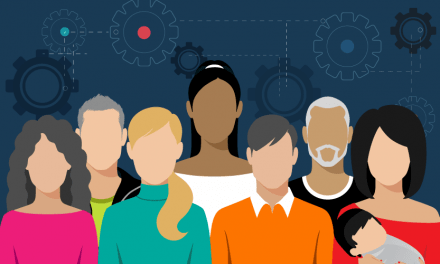Across the nation and here in California, home prices are rising rapidly despite the ongoing recession, leading to what Economist Robert J. Shiller calls an “uncomfortable feeling.”
In a recent interview on Bloomberg, Shiller presents the idea that people are buying partly due to their Fear of Missing Out (FOMO).
Shiller co-authored the book Animal Spirits in 2009, alluding to the emotional changes that drive the economy. According to this theory, emotions (like FOMO) are correlated with the business cycle. Previously, it was used in Keynesian economics to oppose decision theory, the idea that presumes people know probabilities of future events.
Our animal spirits are comprised of five main influences:
- confidence;
- fairness;
- corruption;
- money illusion; and
- storytelling.
All five of these categories have strong effects on the economy. By ignoring the role human emotions play in purchasing and financial decision-making, policies will be created that won’t hold up to these constantly changing animal spirits. Economic forecasters may also end up ignoring the all-important factor consumer emotions play in market movements.
Housing, a segment of the economy Shiller says is hard to predict, is also driven by psychological factors. The COVID-19 experience of being forced to spend more time at home has boosted demand for single family residences (SFRs), but the supply is not there to match demand. Shiller recommends the response to this supply-demand imbalance is to build more houses so prices will ease.
When asked whether the housing market of today is reminiscent of any period in the past, Shiller points to 1926, a time three years before the stock market crashed on Black Tuesday. A housing bubble was spawned in the state of Florida fueled by easy credit and advertisers promoting it as a new leisurely destination. As home prices turned south in 1926, foreclosure rates rose.
And yet, the market continued to rise throughout the late 1920’s and gave way to the “uncomfortable feeling” much like we are experiencing today. Even though the housing and stock markets — asset prices — are booming, not everyone is excited. People know that prices are at their peak, but they are stricken with FOMO, along with months of pandemic inertia, and a desire to make purchases that they otherwise might have left on the back burner.
Irrational exuberance, the tendency for homebuyers and investors to ignore clear warning signs, is making its rounds as the public watches with gaped jaws as prices continue their rising inclines.
Related article:
How emotions play a role in housing cycles
Traditional economic theory assumes individuals act rationally, making economic decisions based on purely economic reasons. In the process of making economics a scientific and calculable discipline, economists largely forgo a major driving force of the economy as a whole: the animal spirits of human emotion.
The animal spirits that influence global economics also influence the housing market. To better understand how this interplay of human emotion affecting real estate functions, examine the definitions for each category that comprise the animal spirit.
Confidence is the first key element of the animal spirit. When people feel confident, they go out into the world and make purchases. They tend to make decisions spontaneously, feeling instinctively successful in their efforts. Confidence requires trust in the system and trust of a positive outcome. On the other hand, once their confidence wanes, their poor decisions are revealed, and their impulse is to sell and withdraw.
Next is fairness. Fairness is incorporated into economics by bringing in expectations about how others are to behave. The inputs equal the outputs, according to fairness and equity theory.
Corruption is the third pillar making up the foundation of animal spirits. Capitalism, with all its strengths, also has its weaknesses. While it caters to what people need, it also caters to what people think they need. Individuals and corporations have the potential to take advantage of this by providing products or services advertising something they do that they really cannot do.
Money illusion is the fourth element of animal spirits. Money illusion affects many different segments of the economy, particularly wages and debts. Workers resists wage cuts, even when the inflation rate is negative because of this money illusion. It doesn’t matter that they can buy more with their money; what matters is the nominal dollar amount.
The final piece to the animal spirit puzzle is storytelling. The human mind thinks in stories. It is what people remember and what people find compelling. Individuals tell themselves stories about why they are doing something, or what they want their lives to be like. A prime example in the housing market is the American Dream of homeownership, or as President Hoover put it: a chicken in every pot and a car in every garage.
With all these elements combined, animal spirits influence real estate because:
- consumer confidence influences people’s willingness to buy or sell;
- people become upset when they perceive unfairness, such as those who resisted foreclosure relief after the last recession, with this focus on “moral duty” leading to more foreclosures than were necessary;
- people respond to periods of corruption or bad faith in financial markets by withdrawing from them and approaching alternative investments;
- money illusion ignores inflation and instead focuses on nominal amounts, which affects consumer attitudes towards mortgage rates; and
- stories like the American Dream of homeownership persist to drive real estate purchases.
Without understanding the animal spirits that drive the real estate market and overall economy, we cannot fully picture or forecast recessions and booms. Buyers experiencing FOMO is a less obvious, more psychological reason behind the rising prices we are seeing in 2021 thus far.
Other reasons for rising home prices include record-low interest rates, tight inventory due to a lack of residential construction and the absence of foreclosure sales due to the foreclosure moratorium which has been in place since last year, slated to expire June 30, 2021.
When foreclosures begin to occur, the animal spirits of human emotion may begin their waning cycles as homebuyers lose confidence in their ability to pay. Watch for how the emotions of people influence the real estate market in the turbulent months ahead.
Related article:














